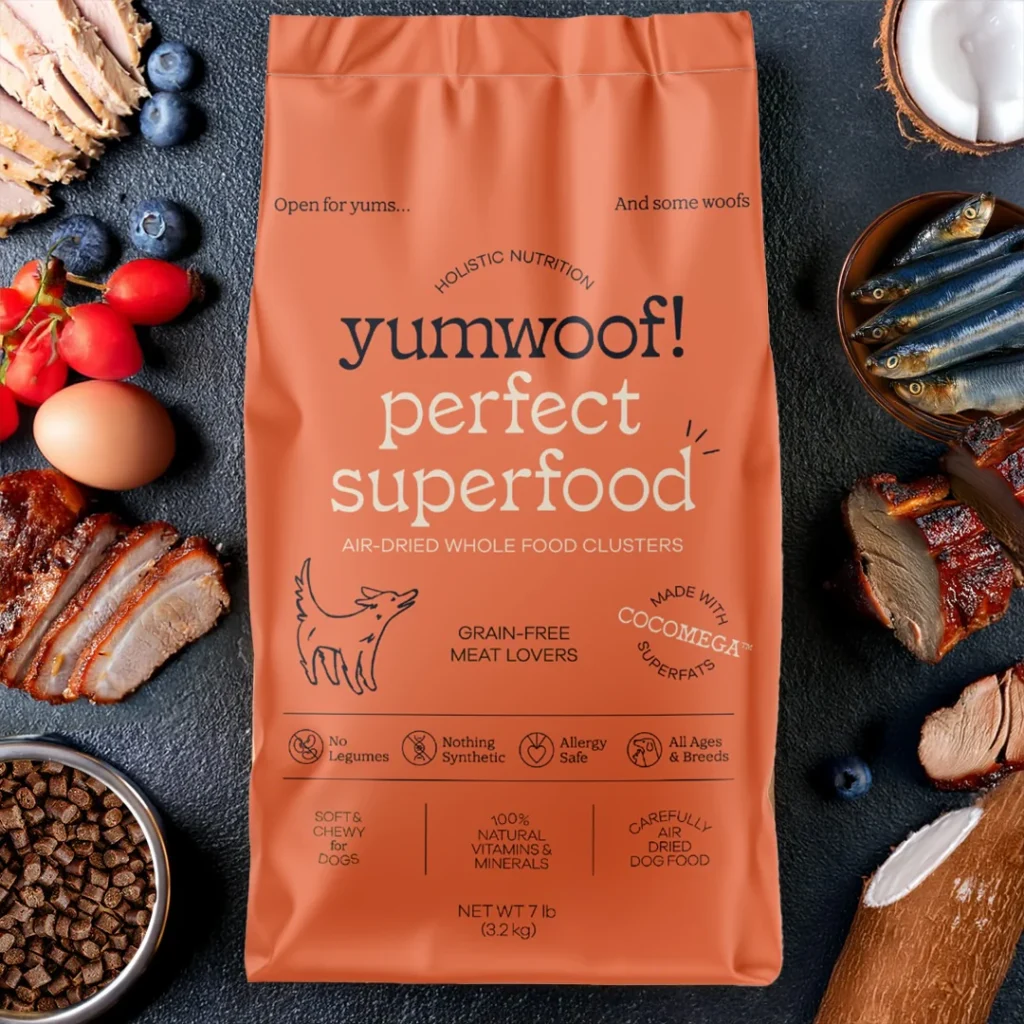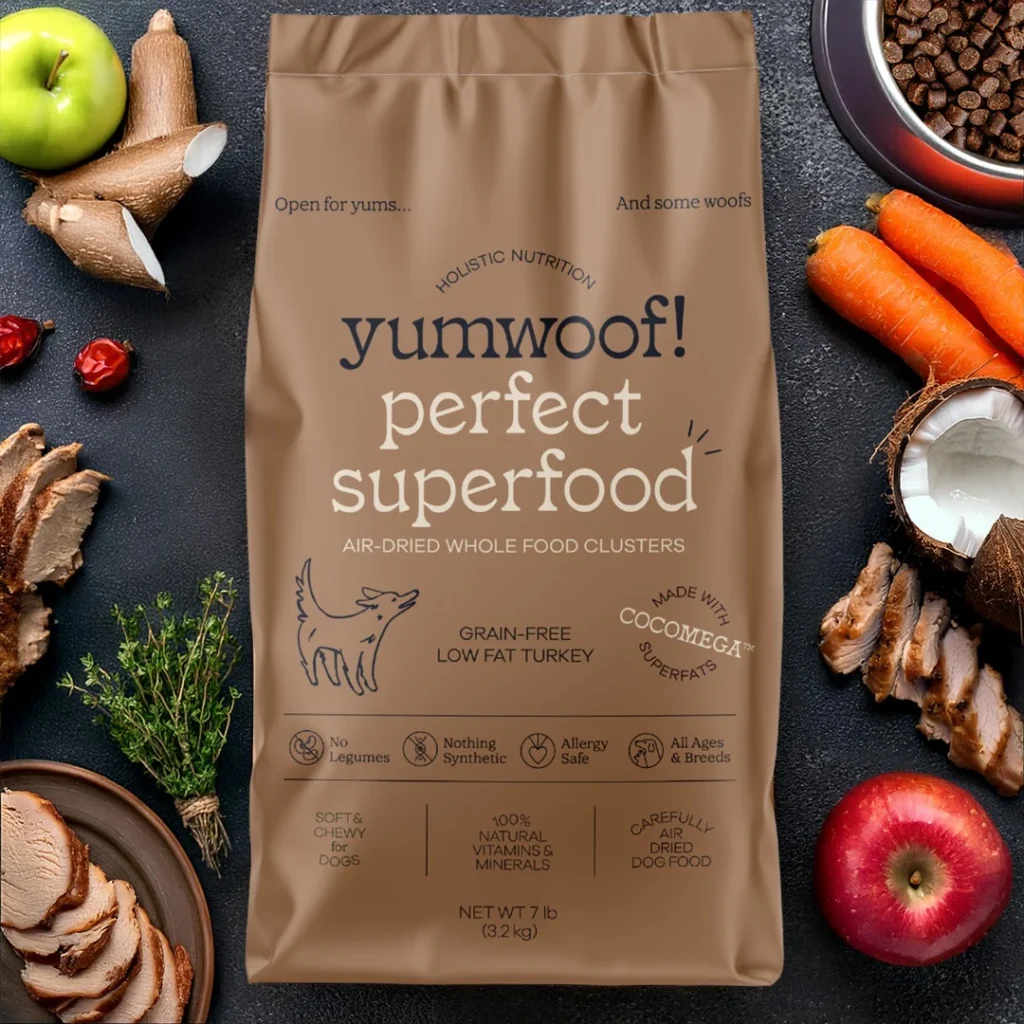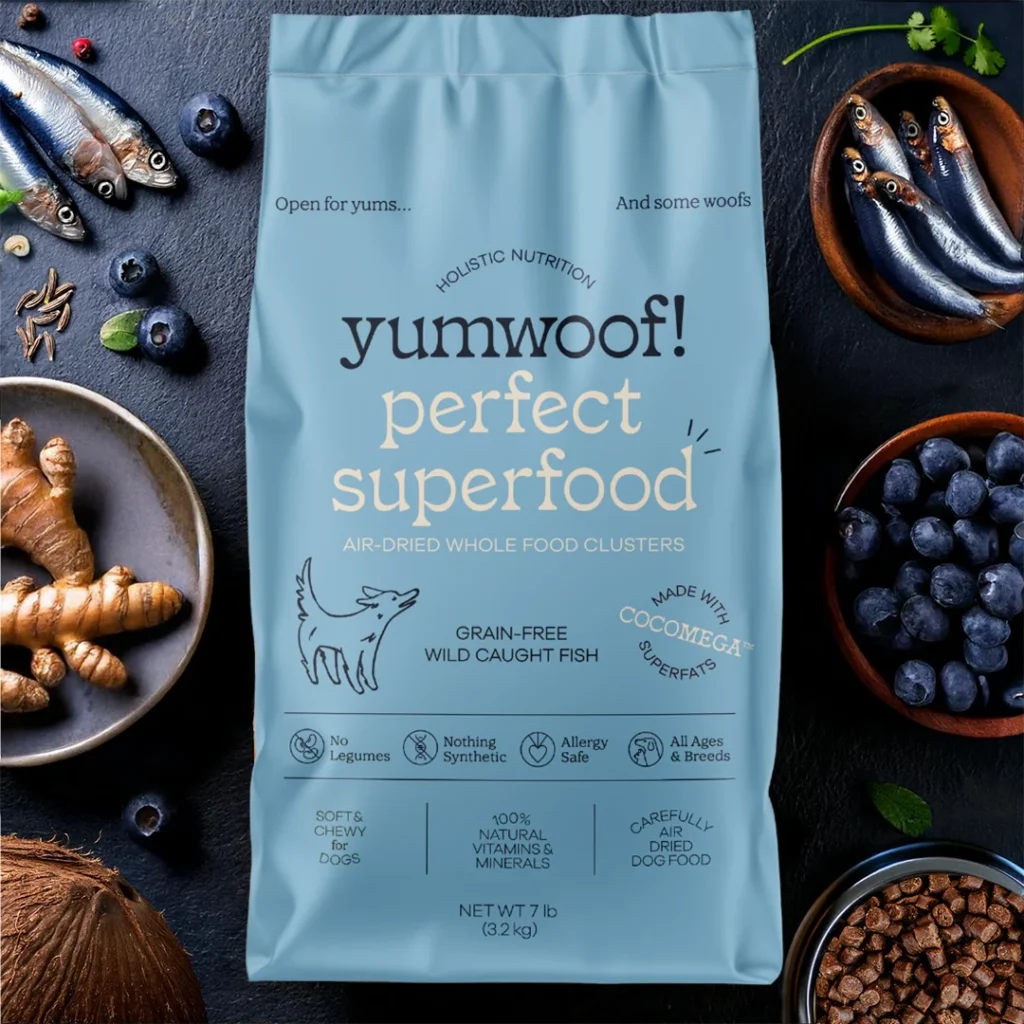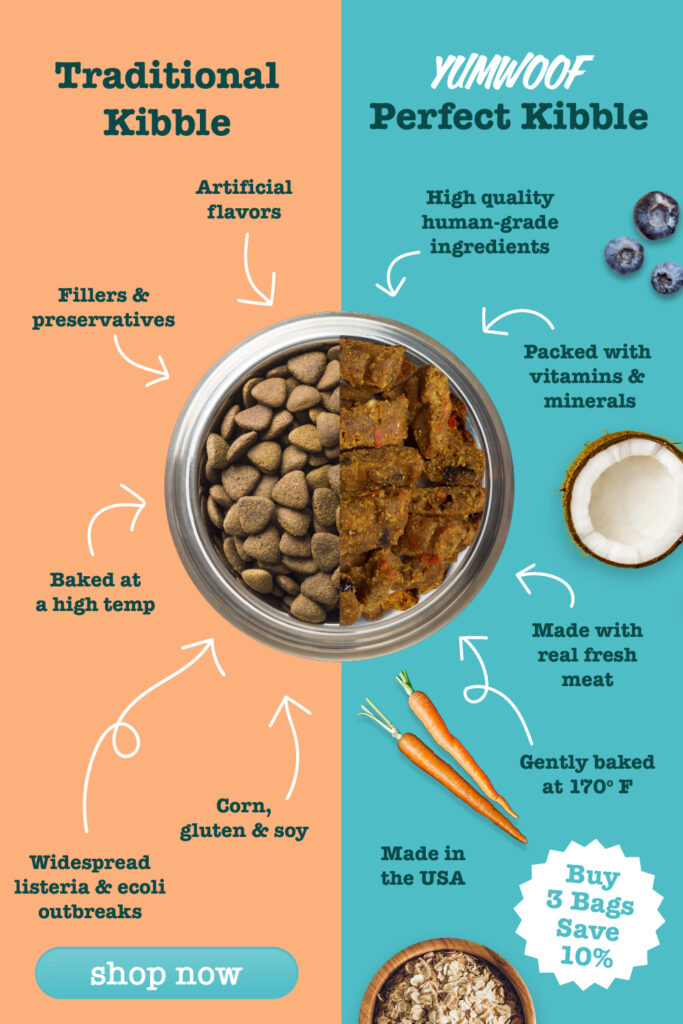Overview of Low-Carb Dog Food
In recent years, the pet food industry has witnessed a significant shift towards more health-conscious products, reflecting a growing awareness of canine nutrition among pet owners. Among the evolving trends, low-carb dog food has emerged as a prominent choice in 2025, highlighting the importance of dietary considerations in maintaining optimal health for pets. This trend aligns with the broader movement towards low-carbohydrate diets in the human population, showcasing an understanding of the impact that carbohydrate intake can have on weight management and overall well-being.
The increasing concern regarding pet obesity and related health issues has driven many owners to explore healthier dietary options for their dogs. Low-carb dog food emphasizes a reduced intake of carbohydrates, instead focusing on protein and healthy fats that can contribute to better weight control. As more pet owners recognize the correlation between diet and health outcomes, the appeal of low-carb options has grown dramatically. Additionally, these dietary modifications are not only about weight management but also about enhancing the overall vitality and longevity of dogs.
Furthermore, the benefits of a low-carb diet are supported by scientific research that highlights how carbohydrate reduction can improve insulin sensitivity, reduce inflammation, and enhance energy levels in dogs. Owners seeking to provide their dogs with the best possible nutrition are increasingly opting for low-carb formulations that align with these principles. As the pet food market adapts to these changing preferences, an array of low-carb dog food products has become readily available, catering to diverse canine dietary needs.
In summary, the rising popularity of low-carb dog food in 2025 reflects a significant trend towards prioritizing pet health through informed nutritional choices. As more dog owners become aware of the consequences of carbohydrate intake, they are inclined to choose options that support not only weight management but also the overall health and happiness of their beloved pets.
The Problem with Starch: Obesity and Diabetes in Dogs
In recent years, the growing concern regarding starch in traditional dog food has come to the forefront of pet nutrition discussions. High starch diets, commonly found in many commercial dog foods, have been linked to a range of health issues, including obesity and diabetes. The relationship between excessive carbohydrate consumption and these conditions is increasingly supported by scientific studies, which demonstrate a clear correlation between high-starch diets and weight gain in dogs.
Many popular dog foods contain ingredients such as corn, wheat, and various fillers that significantly increase the carbohydrate content. According to a study conducted by the University of Illinois, dogs that consumed diets high in starch were more likely to gain weight compared to those on a balanced, protein-rich diet. This weight gain can lead to obesity, which is defined by a body condition score (BCS) indicative of excess body fat. Research shows that over 50% of the canine population is estimated to be overweight or obese, a statistic that highlights alarming trends in the pet food industry.

Furthermore, obesity is closely associated with the development of diabetes mellitus, a serious condition that can significantly impact a dog’s quality of life. The American Veterinary Medical Association reports that diabetes in dogs has increased due to the prevalence of high-calorie, carbohydrate-heavy diets. The pancreas is tasked with producing insulin to manage blood glucose levels; however, prolonged high starch intake can result in insulin resistance, leading to a range of metabolic disorders.
Overfeeding products containing high levels of carbohydrates can thus create a cycle of weight gain and health complications. Pet owners must be vigilant about their dog’s diet, understanding the risks of starchy foods and considering the significant benefits of transitioning to low-carb options. A shift towards low-carb dog food may not only help in weight management but could also improve overall health, longevity, and well-being for our canine companions.
Understanding Ketogenic Dog Food
Ketogenic dog food represents a dietary trend that emphasizes the reduction of carbohydrate intake while increasing the proportion of fats and proteins. This nutritional approach is modeled after the ketogenic diet for humans, where the body is encouraged to enter a state of ketosis. In this state, fat is mobilized and used as the primary source of energy instead of carbohydrates. For dogs, a typical ketogenic diet consists of a macronutrient ratio that aims for approximately 70% fat, 25% protein, and only 5% carbohydrates.
Implementing a low-carb diet for dogs can lead to various health benefits. One of the primary advantages is the potential for enhanced energy levels. As dogs adapt to using fats for energy rather than carbs, many owners report increased vitality in their pets, resulting in improved physical activity and overall energy throughout the day. Furthermore, ketogenic dog food can promote better metabolic health by stabilizing blood sugar levels, which may be particularly beneficial for dogs prone to obesity or diabetes.
Another significant component of a ketogenic diet is the potential decrease in inflammation and the support of cognitive function. The high-fat content of these diets often includes medium-chain triglycerides (MCTs), which are known for their potential to support brain health. This aspect is particularly crucial for aging dogs, as cognitive decline can be a concern in older pets.
While the concept of a low-carb lifestyle for dogs is gaining traction, it is essential for pet owners to consult with a veterinarian before making significant alterations to their dog’s diet. Adopting a ketogenic approach may not be suitable for every dog, and a professional can provide guidance tailored to individual health needs. Overall, ketogenic dog food represents an exciting nutritional trend that has the potential to improve the well-being of many dogs when implemented correctly.
The Science Behind Low-Carb Dog Food Formulas
Low-carb dog food formulas are designed to provide a balanced nutritional profile that supports overall canine health while focusing on reducing carbohydrate intake. These diets primarily emphasize the inclusion of high-quality proteins and healthy fats, which play a significant role in promoting vitality and well-being in dogs. Proteins, often derived from animal sources, serve as the foundational building blocks for muscles, tissues, and various biological functions. In low-carb formulations, proteins such as chicken, beef, or fish are favored for their digestibility and high biological value.
Additionally, the presence of healthy fats is crucial in low-carb dog food, as they serve various functions, including energy provision, absorption of fat-soluble vitamins, and supporting skin and coat health. Ingredients such as fish oil or chicken fat are commonly incorporated to supply omega-3 and omega-6 fatty acids, which are essential for maintaining optimal health in dogs. These fats not only enrich the diet but also assist in inflammation control and cognitive function.
Moreover, the reduction of carbohydrates in these formulas contributes to a lower glycemic index, which is beneficial for dogs prone to obesity or diabetes. Such diets often include moderate amounts of fiber from sources like vegetables, which aids in digestion, promotes gut health, and ensures consistent energy levels throughout the day. Low-carb options also tend to limit the inclusion of fillers or low-nutrition ingredients, focusing on whole foods that contribute to overall health.
In summary, low-carb dog food formulations are carefully crafted to provide essential nutrients that foster the well-being of canines. By prioritizing high-quality proteins and healthy fats while reducing carbohydrates, these diets can support various aspects of a dog’s health, making them a viable option for pet owners seeking to enhance their furry companions’ dietary regimens.
Benefits of Yumwoof Low-Carb Dog Food
Yumwoof Low-Carb Dog Food presents an innovative approach to pet nutrition, addressing the growing concerns among pet owners regarding starch-heavy diets. One of the most significant advantages of this formulation is its emphasis on low-carbohydrate ingredients, which supports a more balanced and sustainable energy source for dogs. High carbohydrate diets can lead to various health issues in pets, including obesity and diabetes. Yumwoof, by including higher protein and healthy fat sources while significantly reducing carbohydrates, effectively promotes optimal body weight and overall wellness.



Another unique selling point of Yumwoof’s low-carb dog food is its utilization of premium, natural ingredients. The product line features high-quality proteins derived from real meat, vegetables, and healthy fats, ensuring a nutritious meal without the fillers and artificial additives often found in traditional dog food brands. This commitment not only enhances the flavor, making mealtime enjoyable for pets, but also supports better digestion and nutrient absorption. Furthermore, Yumwoof’s recipes are tailored to meet the specific dietary needs of dogs, appealing to a wide range of breeds and ages.
Customer testimonials consistently highlight the effectiveness of Yumwoof in improving their pets’ health. Many dog owners report significant enhancements in energy levels, coat quality, and overall vitality after switching to Yumwoof’s low-carb options. This positive feedback serves as strong evidence of Yumwoof’s efficacy when compared to conventional dog food, which often leads to lethargy and poor health over time due to their high carbohydrate content. When evaluating Yumwoof against traditional dog foods, its superior ingredient quality and tailored nutritional balance clearly position it as a leading choice for conscious pet owners invested in fostering their dog’s health and happiness.
How to Transition Your Dog to a Low-Carb Diet
Transitioning your dog to a low-carb diet can be a smooth process when approached with care and consideration. Begin by introducing the new food gradually. Start by mixing a small amount of low-carb dog food with your dog’s current diet, using a ratio of about 75% old food to 25% new food. Over a week or two, slowly increase the proportion of low-carb food while decreasing the regular food. This gradual approach helps minimize digestive upset and allows your dog to adjust to the new dietary composition.
During this transition period, closely monitor your pet’s reactions. Keep an eye on their energy levels, stool consistency, and overall behavior. A low-carb diet should generally lead to more stable energy levels and improved digestion. However, some dogs may experience temporary adjustments, such as mild gastrointestinal upset. Should these symptoms persist beyond a few days, it may be prudent to consult your veterinarian to rule out any underlying issues and ensure that the new diet is suitable for your dog.
Ensuring nutritional balance throughout this transition is vital. Low-carb dog foods often focus on quality protein sources and healthy fats to provide essential nutrients. Verify that the new diet meets your dog’s specific nutritional requirements based on age, size, and activity level. If your dog has any health concerns or special dietary needs, it is advisable to work in conjunction with your veterinarian to develop an appropriate meal plan that suits your dog as they adapt to the low-carb lifestyle.
By following these steps and prioritizing your dog’s well-being during the transition, you can effectively introduce them to a low-carb diet that supports their health and vitality over the long term.
Real-Life Success Stories: Low-Carb Transformations
As the trend of low-carb dog food continues to gain popularity, numerous pet owners have witnessed remarkable transformations in their canine companions simply by making dietary changes. Many of these success stories highlight how transitioning to low-carb diets, particularly those like Yumwoof products, has positively impacted the overall health and behavior of dogs.
Take the case of Bella, a Golden Retriever who struggled with obesity and lethargy. After adopting a low-carb diet, Bella’s weight decreased significantly within a few months, leading to increased energy levels and a more playful demeanor. Her owner, Lisa, states, “The change was dramatic. Bella is now not only more active but her coat shines, and she seems happier than ever.” This quote exemplifies the firsthand experiences owners have reported after switching to low-carb options, emphasizing the holistic benefits of such dietary adjustments.
Similarly, Max, a Beagle famous for his constant scratching due to allergies, had his symptoms alleviated after a transition to a low-carb diet rich in high-quality protein and nutrients. His owner, David, recalls, “Within weeks of the change, I noticed he wasn’t scratching nearly as much. Switching to Yumwoof has truly changed his life.” This statement underlines the importance of proper nutrition in managing health issues often faced by dogs.
The narratives varied, but they consistently convey an essential message: a low-carb diet can lead to significant health improvements and behavior enhancements in dogs. Many owners have expressed gratitude for discovering diet solutions that address various problems, such as weight control, energy levels, and allergies. These compelling testimonies validate the effectiveness of low-carb nutrition, urging pet owners to consider similar dietary options for their beloved pets.
Common Misconceptions About Low-Carb Dog Food
As low-carb dog food gains popularity among pet owners, several misconceptions have surfaced regarding its impact on canine health. One prevalent myth suggests that reducing carbohydrates in a dog’s diet inevitably limits their protein intake. However, this is not necessarily true. Many low-carb dog food formulations are rich in high-quality proteins sourced from meat and fish, ensuring that dogs receive adequate nutrition without excessive carbohydrates. Pet owners need to recognize that protein levels can be maintained or even increased in low-carb diets, thus supporting muscle development and overall health.
Another misconception is that low-carb diets are synonymous with high-fat content. While some low-carb dog foods do contain higher fat levels, not all of them do. In fact, many brands carefully balance fat and protein while keeping carbohydrates low. It is crucial for pet owners to read the nutritional information on labels to understand the fat content adequately. A well-formulated low-carb diet will provide necessary fatty acids and nutrients without skewing toward unhealthy fat levels.
Additionally, there are concerns about the potential risks associated with a low-carb diet for dogs. Some pet owners worry that eliminating carbs could lead to nutritional deficiencies or health complications. It is important to note that not all carbohydrates are created equal. Low-carb dog foods often replace grains with healthy vegetables and legumes, which can offer essential vitamins and minerals. Furthermore, numerous studies have demonstrated the benefits of controlling carbohydrate intake in managing obesity, diabetes, and other metabolic disorders in dogs.
Through an informed understanding of low-carb diets, pet owners can dispel these myths and make educated decisions regarding their dog’s nutrition. Addressing these common misconceptions allows for a more balanced approach to pet feeding in a world where health-conscious choices are increasingly valued.
Make the Switch with Yumwoof Today!
As we delve into the significance of low-carb dog food for optimal canine health, it becomes increasingly clear that making an informed choice for your pet’s nutrition is paramount. A shift towards low-carb options, such as those offered by Yumwoof, can yield remarkable benefits, including enhanced energy levels, improved digestive health, and better weight management. Yumwoof is committed to providing your dog with high-quality, low-carb nutrition that meets their specific dietary needs.
Transitioning to Yumwoof’s nutritionally balanced recipes is a seamless endeavor. With various formulations tailored to suit every dog’s requirements, pet owners can feel confident in choosing a product that aligns with their furry friend’s health objectives. Additionally, Yumwoof is dedicated to transparency, ensuring that every ingredient enhances your dog’s well-being. The emphasis on low-carbohydrate content enables dogs to thrive, supporting their activity levels and overall vitality.

For pet owners ready to unlock the benefits of low-carb dog food, Yumwoof offers an exclusive deal for first-time buyers! Use the discount code AFFLUX5 at checkout to enjoy a special price reduction on your initial order. Don’t miss this chance to boost your dog’s health and vitality without straining your budget. Visit Yumwoof’s official website now to explore their premium products and make the switch today. Take the first step toward a happier, healthier life for your furry friend!
By choosing low-carb dog food, you are not only offering your pet a meal but also a lifestyle upgrade that contributes to their long-term health and happiness. Don’t wait any longer; let Yumwoof be the nutritional choice that supports your furry friend’s journey to optimal health.





